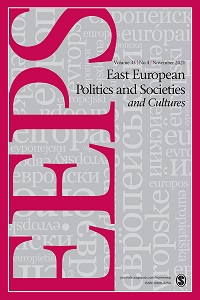“Does Džeko Live in Bosnia and Herzegovina?”: Demographics as a Hostage of Ethno-politics in the 2013 Census
“Does Džeko Live in Bosnia and Herzegovina?”: Demographics as a Hostage of Ethno-politics in the 2013 Census
Author(s): Ondřej Žíla, Petr ČermákSubject(s): Government/Political systems, Political behavior, Politics and society, Demography and human biology, Present Times (2010 - today), Inter-Ethnic Relations, Politics and Identity
Published by: SAGE Publications Ltd
Keywords: Bosnia and Herzegovina 2013 census; ethno-politics; ethno-demographic geography; census validity; politicization of demography;
Summary/Abstract: In ethnically divided societies and political systems organized according to the principles of consociationalism, demography plays a crucial role as a powerful tool for promoting ethno-political interests. The aim of this article is to evaluate to what extent the first post-war 2013 census in Bosnia and Herzegovina became a hostage to the principle of ethno-politics. This study is grounded in Horowitz’s analysis of censuses in deeply divided societies, which assumes that ethnic identity in fragmented societies provides an explanation of who people vote for, and the reverse. We use the data on ethnic voting in 2014 as an indirect estimate of the ethnic structure of the population to verify the 2013 census findings. To do so, we determine the extent to which people enumerated as residents in the 2013 census actually live at the places they were counted, as required by the census law. Although we found that the indirect estimate of ethnic demography based on ethnic voting is largely in line with the census results, we also identified specific structural discrepancies between census results and voting patterns that indicate possible flaws in the census data in general. The method we used revealed significant territorial discrepancies, bringing into question the validity of the census data about the presence of Bosniak and Croat returnees in the Republika Srpska, and especially for Croats across Bosnia and Herzegovina. We argue that these discrepancies may have significant political consequences for the fragile Bosnian powersharing system based on ethnic quotas and proportionality.
Journal: East European Politics and Societies
- Issue Year: 35/2021
- Issue No: 04
- Page Range: 1013-1042
- Page Count: 30
- Language: English
- Content File-PDF

